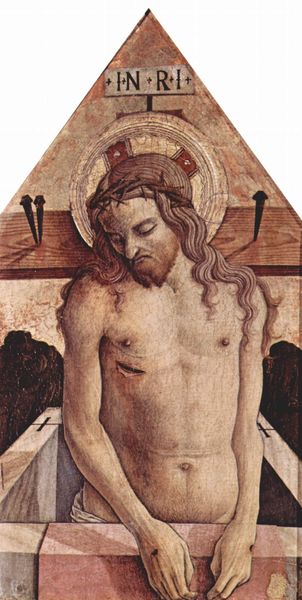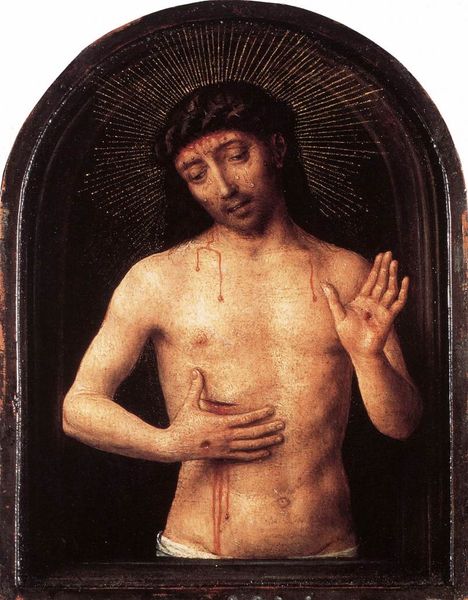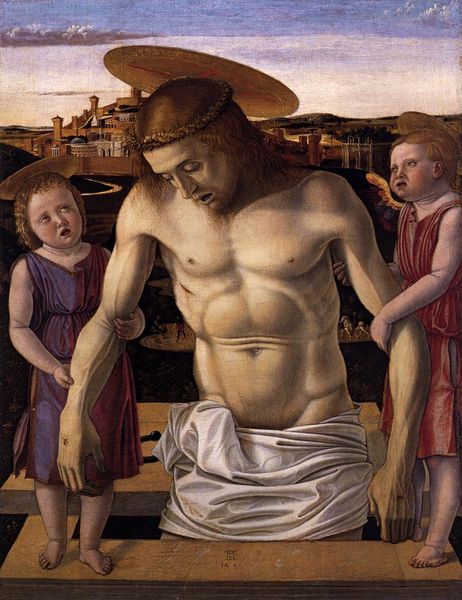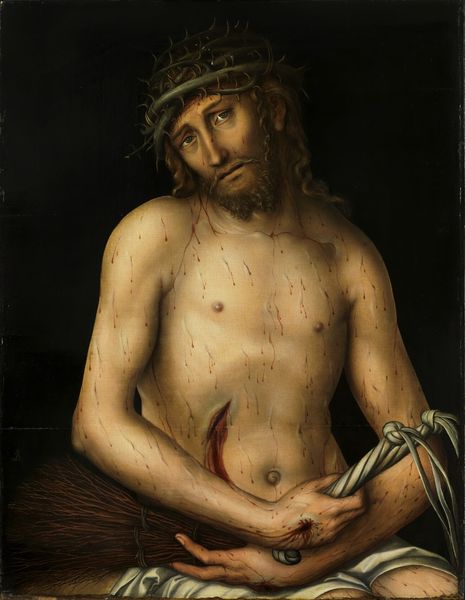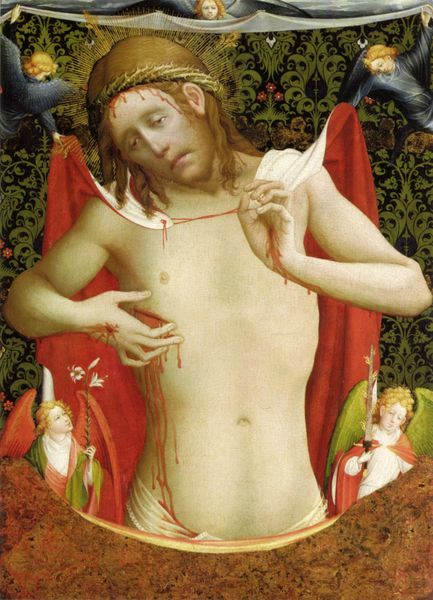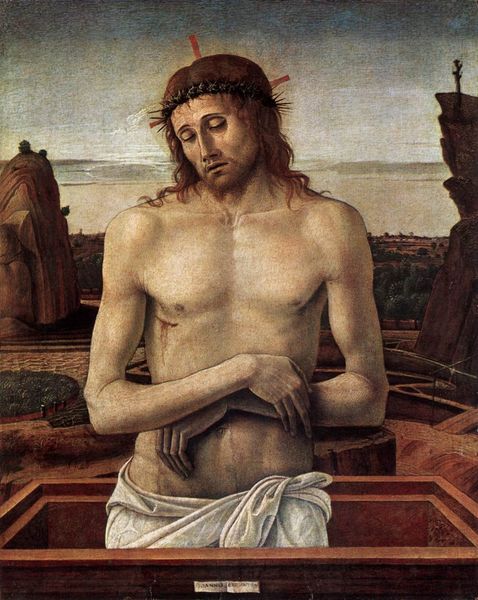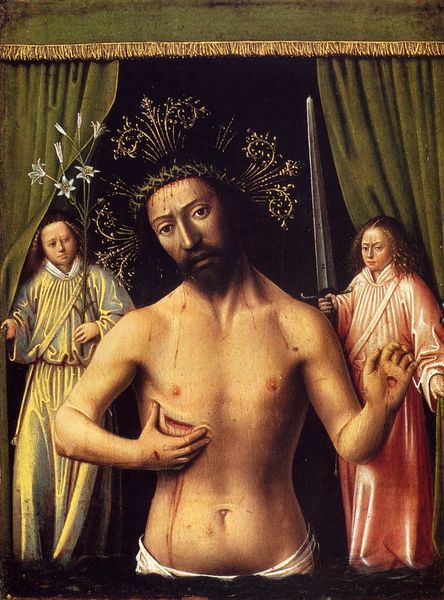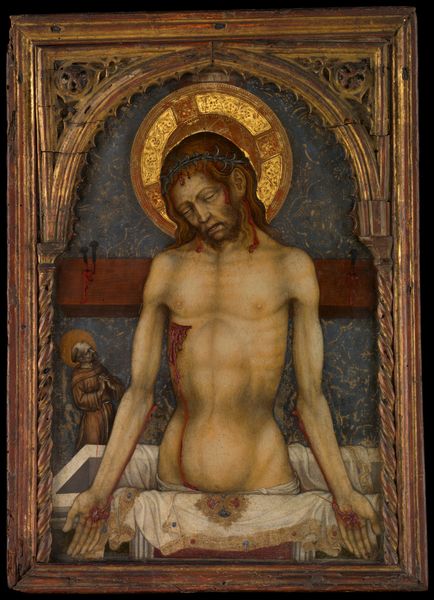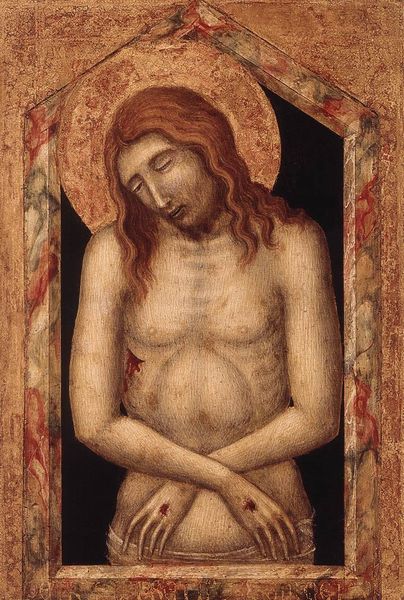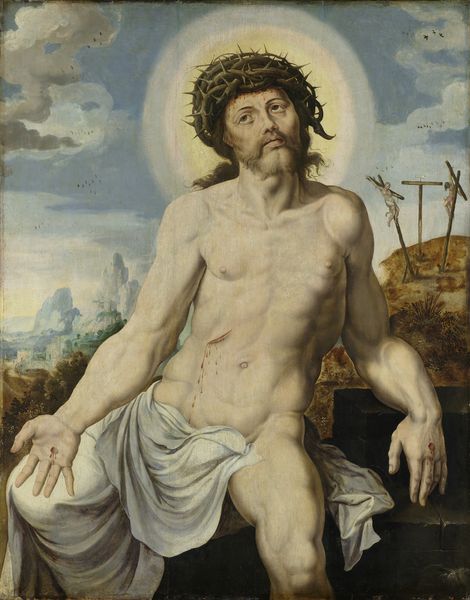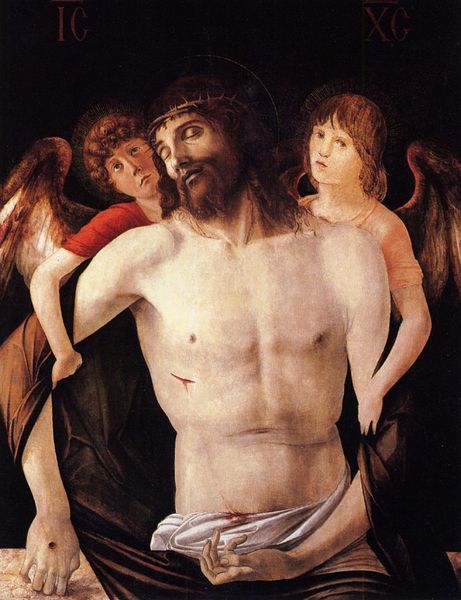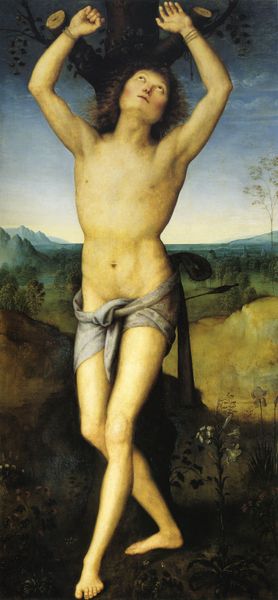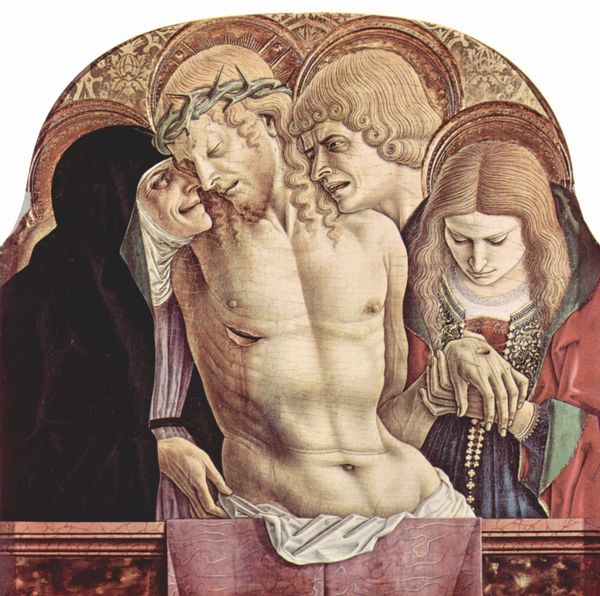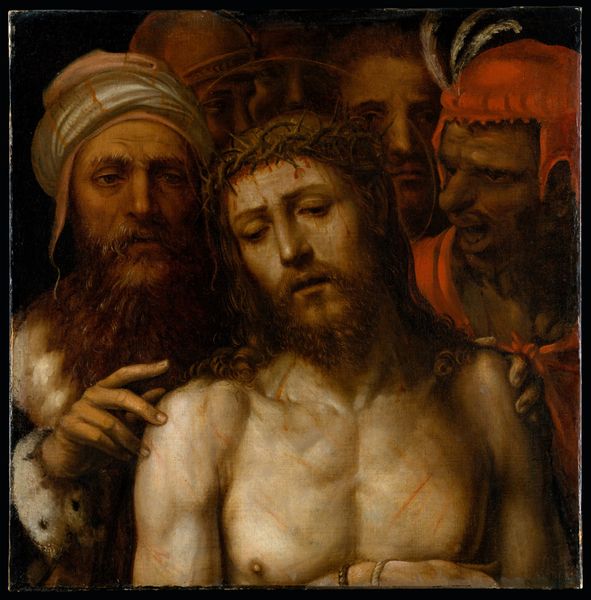
tempera, painting
#
portrait
#
high-renaissance
#
tempera
#
painting
#
figuration
#
chiaroscuro
#
christianity
#
history-painting
#
academic-art
#
italian-renaissance
Copyright: Public domain
Editor: Here we have Pietro Perugino’s "Christ on the Sarcophagus," from 1495, created with tempera. It’s stark. Stripped bare, Christ is presented as a study of human suffering. How would you interpret this work from a more materialist perspective? Curator: For me, a materialist approach redirects our focus from the spiritual symbolism to the concrete conditions of its creation. Consider the tempera itself. Its properties—the slow drying time, the luminosity—demanded a precise, controlled technique. Perugino's workshop, the labor division involved, and the cost of materials all shaped the image we see. How might these economic and social realities impact our understanding? Editor: I suppose I hadn’t really thought about the tempera influencing the message so much. The choice feels almost practical. But what about the cultural context, beyond just the making? Curator: Precisely! The rise of humanism significantly altered artistic patronage, consumption, and distribution in late fifteenth-century Italy. Religious art wasn't just devotional, but a symbol of power and wealth. Consider who commissioned this painting and what they intended to communicate. The fine details signal both wealth and meticulous, dedicated labor. This creates layers beyond simple Christian devotion. Editor: So the value lies not just in the image, but in the implications of its production and display? Curator: Absolutely. By understanding the materials, techniques, and socioeconomic structures, we grasp that the “Christ on the Sarcophagus” is a product of a specific time and place. Editor: I now understand that looking at art is more about materials, techniques, and how social and economic forces shape even sacred art. Curator: Right, it moves beyond just 'meaning', to its existence as material product within its world.
Comments
No comments
Be the first to comment and join the conversation on the ultimate creative platform.
